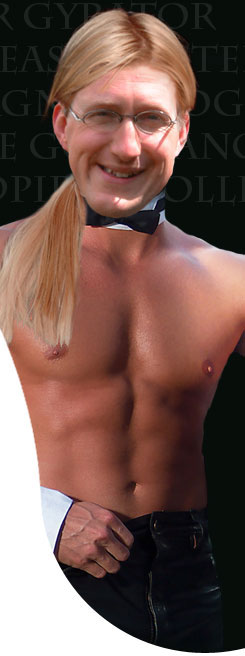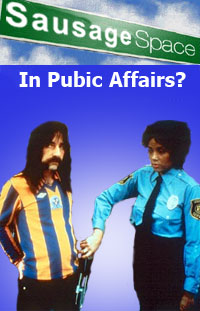The Ubiquitous Quick Monday Morning Harry Potter Review
 * SPOILER ALERT *
* SPOILER ALERT *
There are moments in 'Harry Potter and The Deathly Hallows' when I began to worry that J.K. Rowling had been spending too many late nights with Malory’s ‘Le Morte d'Arthur’, Grimms ‘Fairy Tales’, or even Sir James Frazer’s ‘The Golden Bough’. A deer running through a forest leading to the discovery of a magical sword that needs to be plucked from a lake; arcane symbols etched into old books of Germanic fairy tales; the hero who sacrifices himself to save others only to find that he surprisingly survives death: in the things that it borrows, the story of the last Harry Potter is surprisingly old fashioned and you needn’t even think about the archetypes of literature to find resonances. Luke Skywalker’s ghostly supporters mirrors the friends and family that gather around Harry as he goes into his final battle. Indiana Jones made a similar leap of faith at the end of ‘The Lost Crusade’ in order to save his father. Even in its big set piece battle, you can’t help but think it will look great, up on the screen, borrowing as it does, so much from the stock of CGI special effects and the legacy of Ray Harryhausen.
Yet to think this is another reason to hate Harry Potter is also to forget why it’s so popular in the first place.
The Potter books live in the popular imagination because they are immediately familiar. They are not too far removed from the world of St. Trinians, old Ealing comedies, or even those politically incorrect Enid Blyton books we all read as children but have now been forced out of school libraries in favour of Jacqueline Wilson’s latest epics on divorce and child abuse. Familiarity has always been the popular strength and the critical failing of the Potter series. We return to them because we know what we’re going to get. They follow a pattern that we’ve come to anticipate like the first hit of a sherbet fountain. The early chapters always detail Harry’s unhappy summer holiday spent living with the Dudleys. Then we get to the journey to Hogwarts where we meet the new staff and students. Then it’s the school term, the first signs of dark business going on inside the school, Harry’s loneliness at Christmas… We also expect Harry to spend a good portion of the book reflecting on his orphaned condition, his link to Voldemort, and (in the later books) some unwelcome coming-of-age stuff that got in the way of the wizarding. If anything, the familiarity became too familiar and the longer books got a too self-perpetuating – a sign of a book going from a few hundred pages to brick sized.
Yet even at their most repetitive, the previous Potter books were never boring. They may have lacked Terry Prachett’s wit and humour, but they had far more imagination, story, and heart. They’re less like Tolkien and much closer to T.H. White’s ‘The Once and Future King’, though, unlike Rowling, White wrote his Arthurian tales with a clear social aim which perhaps got in the way of the story. As a conscientious objector, White wrote a book that demystified heroism, mocking its ceremonies and the ultimate pointlessness of war. White was also a better writer of English prose than either Prachett or Rowling.
Potter-haters usually make it a point to mention that Rowling is not one of the best English stylists. But, then, neither are the critics. It could be argued that her unflamboyant style makes her a better writer than many who strive for clever effects. Rarely does it jar on the ear or get in the way of the story. She might not dwell on the deep psychologies of her characters but who really wants that from a writer who has made her name with such a free roaming imagination? Harry Potter’s world is one of almost limitless possibilities, where any problem can be solved with a wave of a wizard’s wand. And this is one of the great pleasures of reading Rowling. She shares with Roald Dahl that love of the British eccentricity, of cobbled together technologies, and garden-shed innovation.
It’s also guilt free writing. There’s very little there to suggest that the Potter novels have any social conscience beyond a very broad message about the fascism of ‘pure bloods’. The note in the flyleaf mentioning that the book is printed on ’100% Ancient Forest friendly’ paper is really as far as that social conscience really gets. Rowling is soon having too much fun pulling down the world she’s created over the previous six books. The story has hardly begun before we’re faced with the deaths of two quite key figures. At one point, after a series a particularly unexpected deaths, the phrase ‘scorched earth policy’ came to my mind.
At six hundred pages, it’s barely more than perhaps a dozen key incidents, held together with plenty of introspection as Harry retreads the same old ground. The plot tries to pull together the earlier books into one coherent explanation that will leave some wondering if it really stands up to scrutiny. If, as Rowling claims, all seven novels had been outlined before a word had been written of book one, then the fact that she’s kept to the plan is more impressive than the often convoluted explanation at the book's conclusion would suggest.
The biggest surprise is the ending. Given the time spent in the novel discussing heroes welcoming death, it feels a bit of a let down. As did the epilogue. Unable to kill Harry, Rowling seems to have found a compromise, allowing Harry a happy ending while also ensuring that this really is the last in the series. She condemns Harry to a different kind of death: becoming middle aged, middle class, and almost muggle-like. It was sad that she didn't allow Harry the heroic end found by others in the novel. It was an ending which suggested, as Dumbledore had earlier explained, that ‘there are far, far worse things in the living world than dying’.






2 comments:
A very well-written review Chip.
Is this something you do professionally in another life?
As for Harry - loved it! I was still reading at 3am on Sunday morning.
I, for one, am glad she didn't kill him off.
I'm profesional in nothing I set my hand to, M&M. Wish I did have another string to my bow but there are too few jobs for a man of my skills. The stripping barely puts enough food on the table...
I finished reading it at about 3.30am. I say it's hard to knock any writer who can keep you beyond your bedtime...
My heart tells me that she did the right thing, but my brain says he should have died to be loyal to the theme of the book. I don't suppose it matters but it would have been more cathartic if she had let him die -- the protagonist and the antagonist obliterating each other at the last moment. That tacked on chapter was just too middle aged. More depressing than if he'd gone out in glory.
Post a Comment